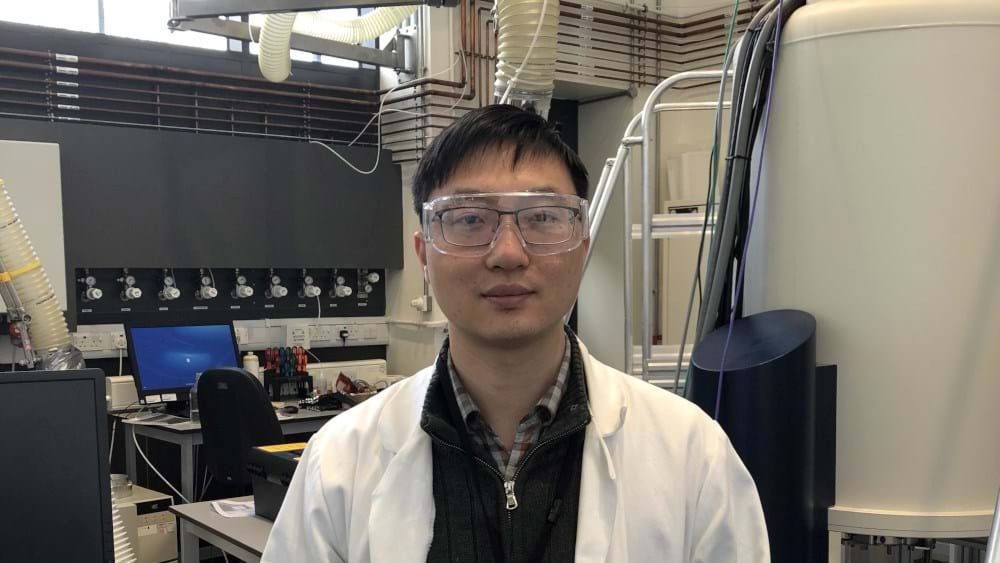Zheng congratulated by IChemE for insights into Fischer-Tropsch synthesis

ICHEME has congratulated Qingyuan Zheng for publishing a paper in Nature Catalysis based on research he completed during his IChemE Andrew Fellowship.
Zheng is a senior research associate at the University of Cambridge’s chemical engineering and biotechnology department. He has published research characterising catalysis during Fischer-Tropsch synthesis occurring in a pilot-scale fixed bed reactor. Fischer-Tropsch synthesis is a heterogeneous catalytic process that is used to produce synthetic fuels and chemicals from a variety of feedstocks, including biomass, gas, and coal. Further development and optimisation could significantly improve the efficiency and sustainability of liquid hydrocarbon production and help meet growing demands for energy.
Conventionally, due to the lack of experimental methods, the catalytic performance is estimated based on the composition of the product once it exits the reactor. Zheng used real-time magnetic resonance imaging to observe Fischer-Tropsch synthesis and has revealed that the product composition inside the catalyst pores substantially deviates from that at the reactor exit..
Marc-Olivier Coppens, professor of chemical engineering at University College London, who mentored Zheng, said that the research completed during the IChemE Andrew Fellowship is “an outstanding piece of work” that highlights the elegant use of various nuclear magnetic resonance methods to provide unique insights “of great fundamental and industrial importance.”
“It has been a very long-standing question on what the composition of wax was inside the pores and how it affected diffusion of hydrogen and the specific product distribution. The huge difference between even the average carbon number inside the pores and the one found from gas chromatography at the exit was important to establish and quantify. Impressive work. To have your results published in Nature Catalysis as a culmination of this research is, of course, the cherry on the cake,” Coppens said.
Alexandra Meldrum, vice president of IChemE’s Learned Society, said: “I am delighted to congratulate Dr Zheng on his excellent research results. Chemical engineers have a critical role to play in helping to address our major global challenges. The IChemE Andrew Fellowship enables ground-breaking research that is directly applicable to making key industrial processes more sustainable. Supporting active research collaboration between academia and industry not only leads to research excellence like Dr Zheng’s, but also generates significant development in the field.”
The Andrew Fellowship is funded through a bequest made by late IChemE Fellow Syd Andrew, who was a catalysis expert. It provides support for researchers working on the science of formulation of heterogeneous catalysts. A report from Zheng summarising the work he conducted during his fellowship from 2019-2023 is available to read here.
Recent Editions
Catch up on the latest news, views and jobs from The Chemical Engineer. Below are the four latest issues. View a wider selection of the archive from within the Magazine section of this site.




